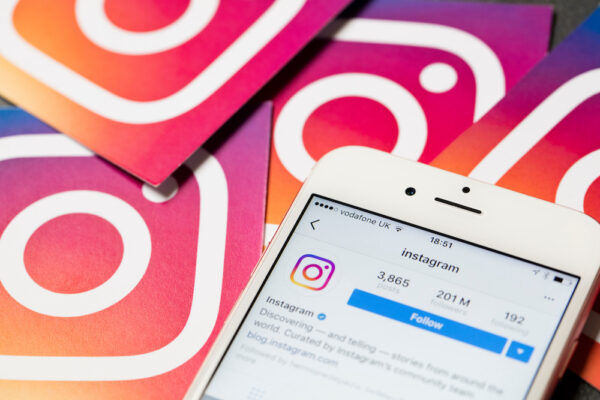The average small business owner is at a complete loss for how to stand out on the web and market a business on social media. Don’t fret. You’re not alone. The internet is changing every single day and keeping up with the best practices for social media marketing for small businesses is a challenge, even for digital marketing pros like us! In order to help newbies like you navigate the digital space, we put together a little intro to each of the major social media platforms you’ll want to use for your small business marketing.
The grand daddy of them all is, of course, the book of faces. Facebook is over 10 years old now and continues to dominate the social media space as the primary platform for social interactions, sharing, and business marketing. Thanks to their revolutionary advertising platform, Facebook is a linchpin for successful small business marketing on social media.
Facebook is all about stories. The trick to effectively communicating with your audience on this platform is to share articles, images, and stories that people can discuss and share. You don’t want to spam your Facebook Business Page’s feed with obnoxious advertisements because no one will care. And if no one cares, no one shares. You want your posts to receive engagement in the form of likes, comments, and shares by appealing to the interests of your customer base.
Keep it authentic and natural, sharing news and updates about your business with the people who matter most. Post 2-3 times per week to keep it active and try to keep it tasteful. Facebook is your bullhorn to the world so make sure what you’re saying and sharing is as appropriate as any sidewalk sign.
While it seems like an odd place to be present as a small, local business, Twitter is a great place to get in front of new people thanks to its use of hashtags. Anyone and everyone can search and follow these organizing tags, so proper use of them will put your tweets and shared content in front of anyone with an interest in that tag. Where Facebook is somewhat exclusive and confined to small circles of friends and localities, Twitter is widespread and universal.
Tweet often, even daily, and make it casual and witty. Twitter is a news feed and a place to share links, quick tidbits, and general updates. It’s also favored by Google so the more you tweet links to content on your website, the more Google finds your site to be relevant. Even if your customers aren’t engaging you on Twitter, you should still tweet for the Google search bump.
The popular photo sharing platform, Instagram, has gone from a successful startup to being acquired by Facebook in a few short years. Now optimized with an advertising platform through Facebook, Instagram is a great place to combine the best of twitter’s open follow and hashtag functionality with Facebook’s targeted ad content network.
Treat Instagram like your company’s official photo book, sharing a nice looking photograph from your business to your feed a couple times a week, with proper hashtags of course. People love to find new photos with hashtags and will often share content with friends by tagging them in the comments. While Instagram’s demographic skews young, it’s a popular platform for most demographics.
Where the other networks favor polite, fun, social networking among friends and fans, Linkedin has cornered the market on professional business networking and boasts a database of millions of active professionals around the world. Your business should have a profile in Linkedin and your key personnel (especially yourself) should be listed with a resume profile.
Linkedin is a great way to make connections with other professionals and colleagues in your industry and, depending on your business, people will often find your profile online and read what others in your industry have to say about you. This is especially important for B2B companies. You don’t have to post often to your Linkedin feed, but you do need to regularly make new connections in your industry.
Other Platforms
There are hundreds of social media networks available on the web so an exhaustive list isn’t what we’re after. The above mentioned platforms are the most important for standard social media marketing for small businesses. Places like Tumblr, Pinterest, YouTube, and Vine are all avenues for distributing your content and connecting with your audience. The name of the game in social media marketing for small businesses is to be present and visible in all the places where your target demographic spends time.
Treat each platform with respect by understanding how it’s used. You don’t want to post things to Instagram that really belong on Facebook. Respect the platform and the audience using it by posting native content in a thoughtful way.
Still need some advice and direction on how to best use social media for marketing your small business? Contact the pros at Signal Interactive for a free consultation. We’ve posted a tweet or two in our time.







